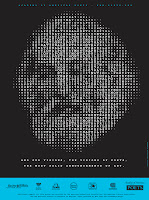Of all of our services of worship during the year, the Maundy Thursday service is perhaps the most meaningful to me, and the most disquieting. At our church, we share Communion and also have a Tenebrae service, which is a liturgy that has roots all the way back to the fourth century. The word tenebrae is Latin for shadows. The service consists primarily of reading the story of Jesus’ betrayal, trial, and crucifixion in sections and extinguishing the light in the sanctuary gradually after each section until the room is dark, save the light of the Christ Candle. Everyone leaves in silence. We will gather again on Resurrection Sunday.
Though the passages are read thoughtfully, the candles put out quietly, and the service has a meditative tone, there is something visceral and unsettling about the experience, so much so that I find I’m almost agitated when I get to church on this particular Thursday each year. For much of the gospels, Jesus is the subject of the sentences; on this night he becomes the Direct Object of vicious verbs: they kissed him, betrayed him, abandoned him, spat on him, slapped him, whipped him, flogged him, beat him, questioned him, mocked him, ridiculed him, put thorns in his head, dragged him out to Golgotha, crucified him.
With each action, another light went out in the sanctuary. Those of us reading last did so by a single candlelight. The darkness outside the church was on pace with our failing candles, shadows pouring through the windows as we grew our own inside, until there was one light. One single light.
In our service, the final acts are for Ginger to carry the Christ Candle out of the sanctuary as we sing “Were You There.” Tonight, the choir sang the first verse, the congregation sang the second verse, and I sang the third from the balcony as the candle left the room:
were you there when they laid him in the tomb?
were you there when they laid him in the tomb?
sometimes it causes me to tremble, tremble, tremble . . .
I left the verse unfinished and turned to ring the church bell thirty-three times to commemorate each of the years Jesus walked on the earth. As those tones drew to a close, Ginger returned the candle to the front of the church and we sat in silence. People then left when they chose to do so.
Our church bell is as quaint as they come, just like our white clapboard New England church building. A rope hangs down in the balcony from the steeple and requires a fair amount of effort to render a ring. Outside the church, you can hear the bell. Inside the church, you hear the muffled sound of the bell, the scrape and moan of the rope going back and forth, and – tonight – the labored breathing of the middle-aged man pulling hard on the rope and trying to keep count of the tolls. At about number twenty, I must say I wished Jesus had died a few years younger. At thirty pulls, I was glad he didn’t live to be my age. When I got to thirty-three, I stopped the rope from moving and the bell from ringing and I sat down in the nearest chair, my arms weak and my shoulders sore, to catch my breath as everyone else sat in silence. I thought back to the first hymn of the evening:
I take, O Cross, thy shadow for my abiding place
When I was working as a minister at another church, I decided to get the point of my sermon across by having the people in the congregation move around. (I’m trying now to remember exactly what the point was.) I wanted those on the right side to move to the left and vice versa as a tangible way of showing our need to find new perspectives in our lives. There were a couple of things I had not anticipated logistically, but things went pretty well. The following Tuesday at deacons’ meeting, I asked for feedback, since it was something they had not done before. Everyone seemed to appreciate the idea except for one who said with a perturbed tone, “I come to church to feel comfortable.”
I knew right then I was not going to be one of her favorite preachers. As the old saying goes, I think we ought to comfort the afflicted and afflict the comfortable. On my way to work today, the discussion on NPR centered on pressuring China to bring about change in Darfur, since China is one of the few governments in the world that has a relationship with the Sudanese government. As one guest noted, “China buys 2/3rds of Sudan’s oil. China’s investments in Sudan have made the US sanctions irrelevant largely in Sudan.” Much of the discussion centered on using the 2008 Olympics, scheduled for Beijing, as a focus of shaming China into action. One of the callers said something about moving slowly because so much was at stake politically. Eric Reeves who was pressing the issue said to the host, “I’m on Darfur time, so I don’t care about the politics. On Darfur time, ten thousand people die every month. On Darfur time, four and a half million people have been displaced and are in need of urgent attention right now. On Darfur time, there is no room for political maneuvering; we must act now.”
I wondered, as the bell was wringing me, how the people outside the church tonight interpreted what they heard. We, on the inside were keeping time with each toll, counting the years of Jesus’ life, watching the lights go out and the shadows grow, setting our hearts and our clocks for Easter. For our neighbors around their supper tables or in front of their televisions, I wondered if they were curious or annoyed or nonplussed. I was moved, rattled, exhausted, disquieted, encouraged. After everything, shadows and all, the light was still burning.
I could see it through the window, even when I got to my car on the other side of the street.
Peace,
Milton
 he room. She didn’t make it often, but when she did my brother and I had to stare it down at the table since we were expected to eat what was put in front of us. Once I met the squash in something other than that dish, I acquired a taste for it. I love to cut it in thick, long pieces and put it on the grill in the summertime. I even grow it in our small garden.
he room. She didn’t make it often, but when she did my brother and I had to stare it down at the table since we were expected to eat what was put in front of us. Once I met the squash in something other than that dish, I acquired a taste for it. I love to cut it in thick, long pieces and put it on the grill in the summertime. I even grow it in our small garden.



